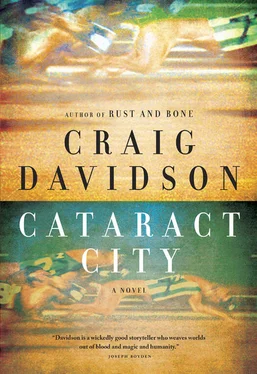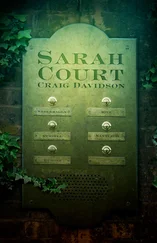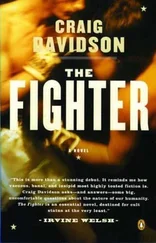Next he was running— fast —through the glittery dawn world, the air cool and fresh. I realized this was all Duncan had been waiting for: an overt display of aggression. Drinkwater had finally assaulted him directly — with a knife, tried to slit his throat. Thank God! Duncan must’ve figured. Now I can kill him . He’d let his rage and pain carry him over. It’d be as easy as breathing.
No . I would not let it happen.
I pursued, losing ground. My boots were still covered in duct tape, making running difficult. Drinkwater appeared suddenly, dashing through the trees. Duncan clawed for Bruiser Mahoney’s old pistol, freeing it, digging his heels into the snow and accelerating.
Drinkwater wheeled clumsily. His hand exploded with light. A slug drilled a tree five feet to Duncan’s left. Duncan raised his own gun, but didn’t fire. Was it jammed? I saw him stare at it, still running. Was the safety on? He fiddled with it, then fired. The pistol bucked in his hand, throwing his arm up. The bullet snapped a twig off a branch directly above Drinkwater’s head. A little lower and the slug would have put a permanent crease in his forehead.
Drinkwater turned and fled again.
I ran, too, but after a few minutes, Duncan was so far ahead that he’d become part of the woods. The trees peeled away abruptly, spitting me out onto a smooth expanse. My boots hit it and skidded. An unbending flatness, with enormous firs edging the northern shore. We had reached the river. We actually had looped around and hit it again, further downstream.
I cocked my ear to the rush of the Falls … yes, yes, it was there. We only had to follow the river towards the sound, hug the shoreline, and soon we’d see signs of human industry: rolls of red-painted snow fencing, a slick strip of bare road, maybe a solitary truck ferrying a couple of ice-fishermen to their shack. We could hitch a ride. Might take a while to convince someone to pick us up, wrecked as we were, but the heart of Cataract City was huge. All we had to do was—
A bullet chipped the ice ten yards ahead, throwing shards into the air. Squinting against the sunlight flooding the frozen river, I saw Drinkwater toss his pistol aside. He and Duncan were thirty yards from shore, staggering like men nearing the end of a death march.
The shadow of a cloud slipped across the sun; in the fragmentary gloom I noted Drinkwater’s knife was unsheathed and he was beckoning Duncan forward with it. Blood lay bright on Drinkwater’s coat. Had Duncan winged him?
“Don’t do it!”
Duncan mustn’t have heard. He threw Bruiser Mahoney’s pistol aside, lowered his head and charged at Drinkwater.
I saw it happening before it happened. It came as a premonition — something that, until then, I’d never believed possible. At the station, people showed up all the time who claimed to “know” they’d be involved in a car accident days or hours or minutes before it happened, or people who “knew” their loved one was missing because some harbinger, some dream, some dread instinct told them so.
I’d never believed those people until I pictured the ice cracking before it actually did. I heard the fault line split the surface — the sound of an aluminum can tearing in half — before it appeared. And I saw Duncan vanish as the plates of ice snapped beneath him, dropping him into the river as neatly as a sprung trap door, all a split second before it happened.
The next moments unfolded in brilliant slow motion, as if the world were a 78 rpm record played at a laid-back 33. I ran past the hole, steering wide, but the shatter lines radiated towards me, causing me to leap back with a yelp. Duncan was a spiderlike apparition under the ice — the white water ripcurled round his body, making it look as though he’d grown extra limbs.
Hot wires of fear twisted in my guts as I followed Duncan upriver, passing Drinkwater, who sat slumped on the ice. How to get at Duncan? May as well reach through aquarium glass and catch a swimming fish. I imagined the river crawling into Duncan’s lungs with icy fingers, the familiar mineral taste of the Niagara filling him. The river flowed north from Lake Erie into Lake Ontario, passing through low country strung with willows whose branches drank from its fast-running flow, over a dolestone bottom and through the hydroelectric plant, which conferred its steely alkaline tang. I had a flash of how Dunk and I used to jump off the old train trestle upriver and the water would shoot straight up our noses; we’d surface with throbbing sinuses, spitting the water out, laughing like hell and kicking for shore.
A terrifying resonance carried across the frozen plate, the sound of a fist thumping a solid oak door. I believed it was Duncan, punching the ice. I had no real clue where he might pass — the Niagara’s currents were notoriously tricky. My only choice was to guess and then hope. Racing twenty yards ahead of Duncan’s shape, I pulled my revolver and shot a quartet of holes through the ice, which webbed as the bullets drilled through; gouts of freezing water spurted through dime-sized holes.
I stomped hard. The ice flexed and water spurted, but the surface didn’t break. Duncan was ten yards off, on track but drifting right. I unloaded a fifth round and stomped hard enough that my boot cracked through, making a foot-wide hole. Brown water sucked the smallish plates of ice away.
I spread my arms and jumped in, dropping to my waist before hitting the rocky river bottom. Blistering cold twined round my legs. I reached under the ice, grasping madly for Duncan as he passed by. The Niagara clutched greedily, buffeting my hips. My duct-taped boots skidded on the slick rocks.
C’mon, Dunk , be there …
It felt like being bitten by a big fish. Duncan’s hands were so frozen and rigid that I nearly jerked away in fright, and in so doing I’d have lost him. But instead some instinct made them tighten spastically and I gripped back, as if to fuse our flesh together.
Duncan’s body rolled with the water. For a long moment it was like a fishing line lying slack in the water. Then came a jerk as he passed further downriver, forcing me to anchor him against the current. My chest shuddered against the jagged crust of ice, knocking the air from my lungs. Digging my feet into the rocks, I realized that if I slipped I’d be under the ice too, both of us dragged into the depthless channels of the river to die amongst the brook trout and catfish locked in their winter stupor. Duncan’s hands gripped mine tightly — was it just nerves now? Did fingers keep gripping after life had fled the body, the same way hair and nails kept growing? Bovine had once said that a corpse’s hair kept growing up to four months after death. It’s true, man. You could dig up a grave and find an old businessman with a mullet .
I managed to grab Dunk’s elbow and gave a convulsive jerk, not caring if I broke the bone. Bones healed. Brains stayed dead. Gripping his collar, I drew him to me. His hands appeared over the icy lip. They remained outstretched for an instant, livid … then they tightened.
Duncan’s head appeared, his eyes wide open. For a long moment he did not breathe. Then his mouth flew wide and he drew in a massive choking inhale. I dragged him up, laid him on the ice. Blue veins stood out on his forehead, like on a baby’s head.
My gun was where I’d dropped it. One round left. I staggered downriver, the water already crackling on my trousers, and found Drinkwater in a spreading pool of blood.
“Give me your coat, Lemmy.”
“No,” Drinkwater said.
“Now.”
“No,” he repeated.
I grabbed his coat, aiming to take it from him as you would from a truculent child. He fought back fiercely. Something fell out of his pocket. It lay on the ice, its shiny casing winking in the sun.
Читать дальше












